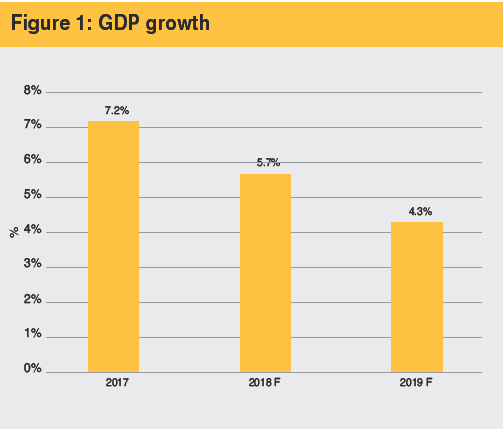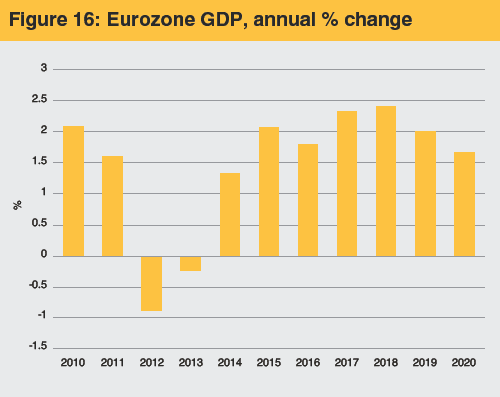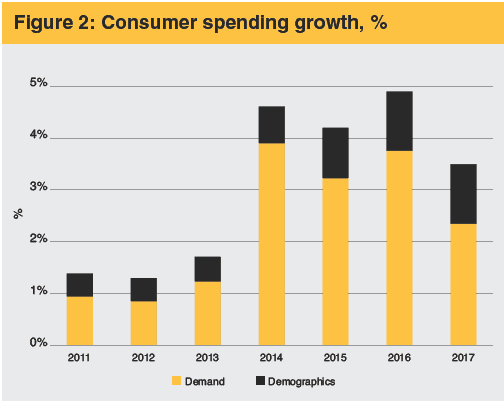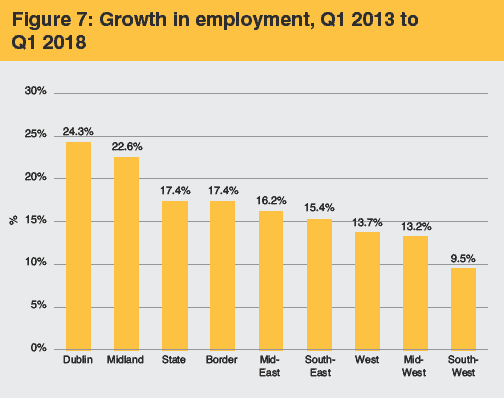Economy comes close to capacity making for significant challenges to external environment warns Ibec
Ibec, the group that represents Irish business, published its latest Quarterly Economic Outlook Q2 2018, which forecasts growth of 5.7% this year and a buoyant consumer economy growing by 2.9% in volume terms. The economy is in a strong position with households clearly benefitting from rising incomes. The economy has firmly moved into a ‘post-recovery’ stage with both employment and consumption comfortably passing their pre-crisis peaks. In addition, there is little sign of this consumption being driven by the excess credit of the boom years.
While this news is very positive, Ibec has also warned against complacency on competitiveness at a time when external threats are increasingly likely to materially impact on our growth. As the economy comes close to capacity and navigates significant challenges to our external environment over the coming years it is important we make the right decisions to protect our indigenous industry.

Source: Ibec
Ibec’s Head of Tax and Fiscal Policy, Gerard Brady, stated: “The story in today’s report is a positive one, the economy is growing, trade remains robust despite Brexit, and households are clearly benefitting through incomes which are increasing at the fastest rate in Europe. Last year, 19% of Ireland’s workforce either changed job or started working. This is up from 13.4% in 2010 and is a sign of the health of the labour market. As a result, Q1 2018 saw the fastest wage growth in the economy since the crisis with average wage growth reaching 2.5% year-on-year. Our view that the economy is now firmly in a ‘post-recovery’ phase is supported by all these factors.

Source: Ibec
He continued:
With the economy approaching full employment the biggest challenge facing the Irish labour market will be finding workers to fill vacancies. Feedback from Ibec member companies suggests that firms are now finding it increasingly difficult to attract and retain talent. We have pointed out in previous editions of this publication that the outlook for net migration is not as strong as it was in the mid-2000s. There must be a greater emphasis on funding the higher and further education sectors to upskill existing staff.

Source: Ibec
Economic Outlook predictions
According to Brady the next downturn will be different to the last and it is crucial that “we put ourselves in a strong competitive position while we still benefit from global tailwinds.” US tax reform, Brexit and the prospect of a retreat of global trade will be a challenge for the economy moving forward. Additionally, rising business will reduce our competitiveness. He said:
Budget 2019 should tackle these issues by adopting a renewed focus on competitiveness and indigenous business. Doing this, and investing wisely in infrastructure, education and innovation will be the most effective way to protect the economy from any future downturn.

Source: Ibec





